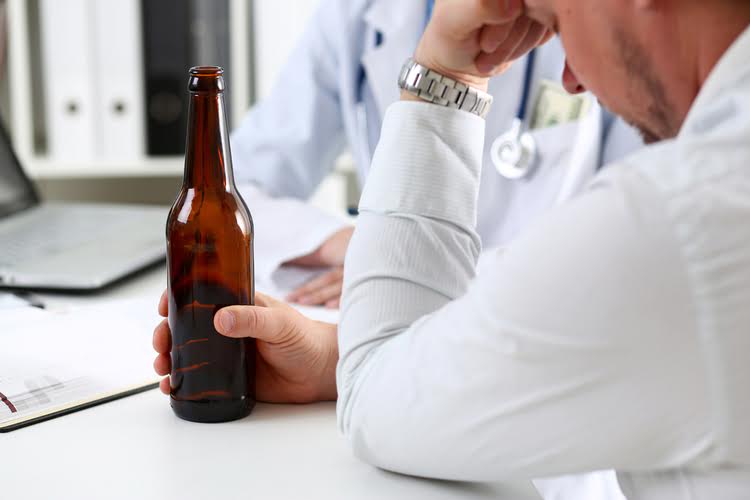Content
We attempted to identify all studies of pharmacological agents used to treat sleep problems in patients with alcoholism. In accordance with the Quorum statement, we performed a search alcohol insomnia of all common databases including PubMed, EMBASE, Psych Info and Medline. The search terms used were alcohol, insomnia/sleep and treatment/management individually and in combination.
- So if you usually swallow the same amount of wine or beer each night and go to sleep around the same time, you’re going to wake up at a predictable hour, Roehrs says.
- Someone in recovery from alcohol use may experience setbacks because of sleep-related withdrawal symptoms.
- Sleep problems can persist for weeks, months, or even years, which can lead to increased anxiety, tiredness, poor concentration, low enthusiasm and irritability.
- Without deep sleep, our mind and body are unable to do what’s necessary to prepare for the next day.
Our search revealed two studies of trazodone used to treat sleep problems following cessation of alcohol use. In this systematic review, we limit ourselves to the treatment of insomnia in patients with alcohol dependence. As the severity of alcohol use disorder increases, so does the risk of insomnia. In addition, alcohol users who smoke, have co-occurring depression or anxiety, or who specifically used alcohol as a sleep aid are much more likely to experience this troubling symptom.
Why Does Alcohol Make You Sleepy?
This common and troubling symptom is often enough to lead people to relapse during this first stage of recovery, but it can be treated with the help of medical detox professionals. Has been studied since the 1930s, yet many aspects of this relationship are still unknown. Research has shown that those who drink large amounts of alcohol before bed are often prone to decreased sleep onset latency, meaning they take less time to fall asleep. As liver enzymes metabolize the alcohol during the night and blood alcohol levels decrease, these individuals are also more likely to experience sleep disruptions and decreases in sleep quality. Regular physical activity earlier in the day can improve sleep quality at night, but try to avoid vigorous exercise close to bedtime, as it can make it more challenging to fall asleep. There is a tremendous amount of scientific evidence that contributes exercise with better sleep.
Consuming alcohol may present a higher risk of developing sleep apnea. In a 2018 study, researchers found that alcohol increases this risk by 25%. Individuals living with AUD experience much poorer sleep quality than those who consume moderate amounts of alcohol. They experience limited REM sleep, which can affect their health.
Types of Alcohol-Related Sleep Problems
According to Timothy Roehrs, director of sleep disorders research at Henry Ford Hospital in Detroit, booze has a “paradoxical” effect on your slumber in that it both helps and hurts the quality. Much of Roehrs’s career has focused on the effects alcohol has on sleep. His research suggests that soon after you consume alcohol, that glass of wine or tumbler of bourbon helps speed your descent into slumber.
For most people, insomnia and alcohol withdrawal will end after about a week. However, some people may continue to experience insomnia related to their alcohol use disorder for weeks or months. These people can benefit from continuing with sleep medication or seeking cognitive-behavioral therapies for insomnia, which have been shown to be effective at improving sleep quality in recovery. Participants reported the number of days on which they had “four or more drinks on one occasion” in the prior three months.
How to Deal with Insomnia After Quitting Alcohol
Verywell Mind uses only high-quality sources, including peer-reviewed studies, to support the facts within our articles. Read our editorial process to learn more about how we fact-check and keep our content accurate, reliable, and trustworthy. The goal of cognitive behavioral therapy for insomnia (CBT-I) is to change sleep habits as well as any misconceptions about sleep and insomnia that may perpetuate sleep difficulties. David Susman, PhD is a licensed clinical psychologist with experience providing treatment to individuals with mental illness and substance use concerns.

If you or a loved one is ready to overcome an alcohol addiction, reach out today. Treatment providers can connect you with programs that provide the tools to help you get and stay sober. Someone looking for treatment for their Insomnia, without taking their alcohol use into consideration, could make the problem worse.
One of the side effects of alcohol is drowsiness, so it can make you fall asleep quickly. Late afternoon drinking or drinking within 6 hours of bedtime can disrupt sleep. Research shows that between 33% and 40% of people who consume alcohol experience mild to severe anxiety. Anxiety symptoms can cause or worsen insomnia for some individuals. They may turn to alcohol to reduce their anxiety symptoms, which also increases insomnia, exacerbating their anxious feelings. If a person chooses to consume alcohol, drinking in moderation several hours before bed is the best practice for avoiding sleep disturbances.
